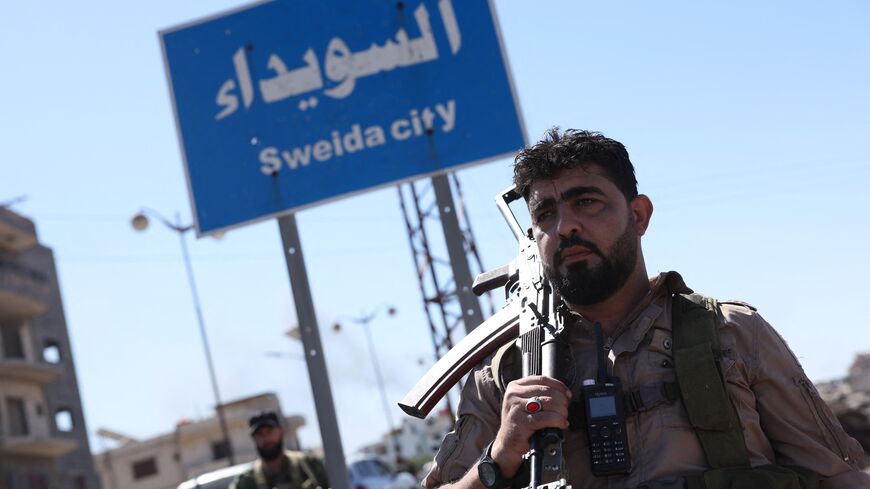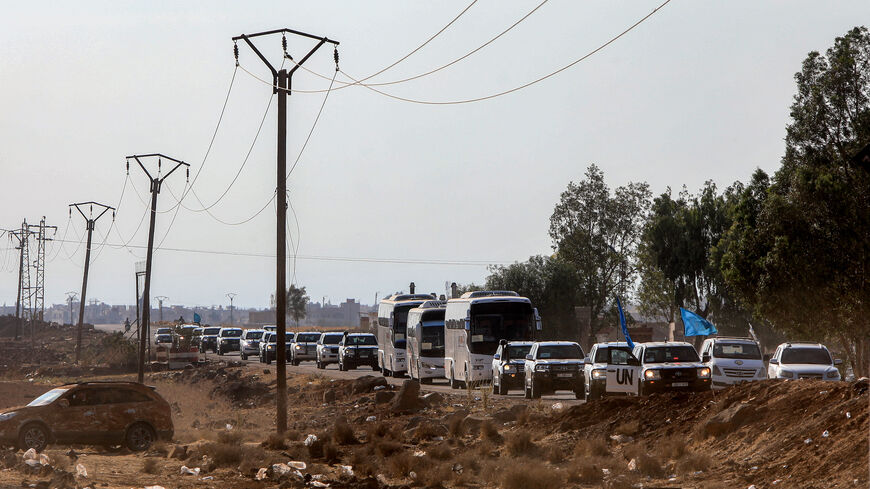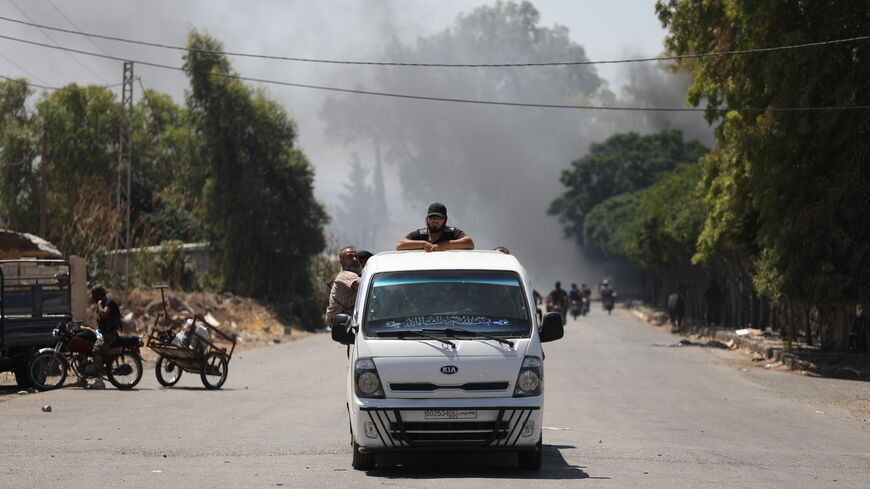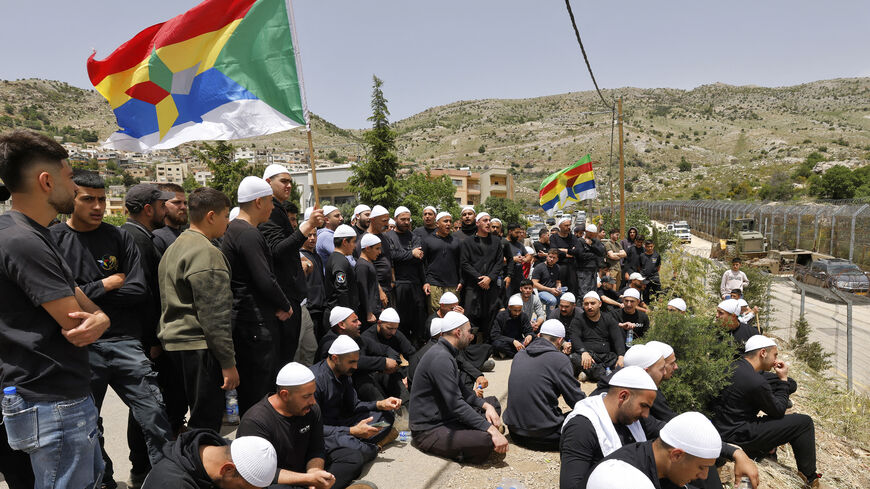Syria says army withdrawing from Suwayda after deadly clashes with Druze
The withdrawal follows reportedly an understanding between Damascus and local Druze leaders to end the fighting after days of deadly violence.
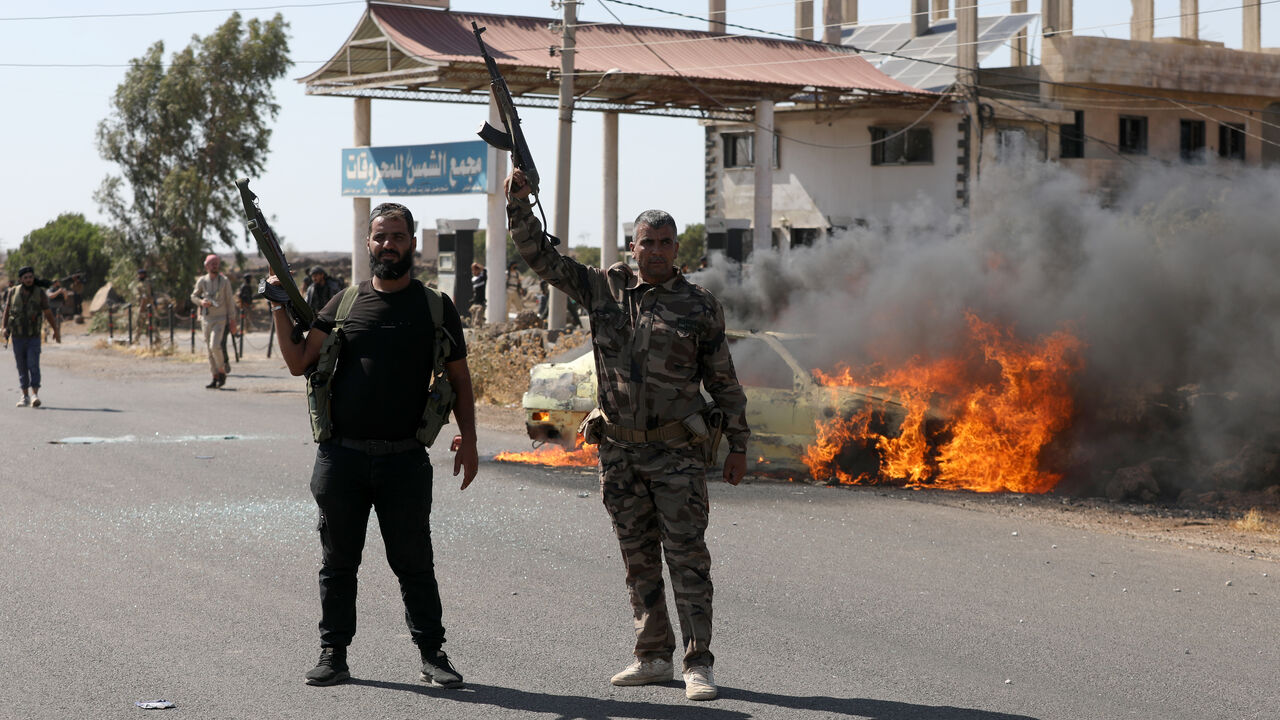
The Syrian government announced a withdrawal of its forces from Suwayda on Wednesday evening, following a day of renewed deadly violence and Israeli strikes that are challenging the political transition in the country under President Ahmed al-Sharaa.
What happened: Syria’s official news outlet, SANA, reported at 10:48 p.m. local time (3:48 p.m. ET) that Syrian Army forces had begun withdrawing from the majority-Druze city of Suwayda in keeping with an agreement between the government and local leaders. The withdrawal followed the "completion of the army's mission to pursue groups outside the law," the outlet reported.
Over five hours earlier, the Syrian Interior Ministry announced a ceasefire after clashes with what they described as "outlaw groups."
The agreement stipulated the establishment of checkpoints by local police and internal security forces, the removal of weapons “outside the framework of the state,” the integration of Suwayda into the Syrian state and a fact-finding committee to investigate crimes and rights violations in the area, among other terms, according to the announcement.
Earlier, the Druze armed group Men of Dignity said in a statement, “Any agreement that does not include the full withdrawal of all invading forces … will be absolutely unacceptable.”
The Syrian Observatory for Human Rights said that the death toll has reached 260 since the violence in Suwayda began on Sunday.
Israel said it bombed the Syrian army headquarters in Damascus on Wednesday after warning the Sharaa government to respect the security of the Druze in Suwayda. Reports emerged on social media that Israel struck close to the presidential palace in Damascus.
Besides Damascus, Israel said it also struck near Suwayda to block Syrian tanks, missile launchers and other vehicles from reaching the area, including by targeting roads.
At 4:10 p.m. local time (9:10 a.m. ET), the Israeli army announced that it ordered additional forces to the north in order to “increase the pace of strikes and halt attacks against the Druze in Syria.”
The Syrian Health Ministry said three people were killed and 34 were injured in Israeli strikes in Damascus and its suburbs, SANA reported.
Israeli Prime Minister Benjamin Netanyahu said in a statement that Israel is "acting to save our Druze brothers and to eliminate the gangs of the regime.”
The observatory said that three commanders in the Syrian Defense Ministry's forces were killed in the Israeli strikes.
US Secretary of State Marco Rubio told reporters on Wednesday that the United States is “very concerned” about the situation and is in talks with both the Israeli and Syrian governments.
“We are very worried about the violence in southern Syria. It is a direct threat to efforts to help build a peaceful and stable Syria. We have been and remain in repeated and constant talks with the governments of Syria and Israel on this matter,” Rubio said.
US special envoy to Syria Tom Barrack said in a post on X that the perpetrators of violence against civilians in Suwayda must be “held accountable.”
Israeli Defense Minister Israel Katz announced on Wednesday that he will travel to Washington for meetings with his American counterpart, Pete Hegseth.
Turkish Foreign Minister Hakan Fidan held separate phone calls with his Saudi and Jordanian counterparts, Prince Faisal bin Farhan and Ayman Safadi, to discuss the situation. A Turkish diplomatic source told reporters on Wednesday that “Israel’s attacks [are] aimed at destabilizing the region.” Both Turkey and Saudi Arabia back the Sharaa government and helped convince US President Donald Trump to remove decades-long sanctions on Syria.
Why it matters: Violence between Druze and Bedouins erupted in Suwayda on Sunday following a string of tit-for-tat kidnappings. The Syrian government announced a ceasefire on Tuesday.
Israel carried out strikes in the area on Tuesday. The Druze number about 750,000 in Syria and 140,000 in Israel.
Netanyahu told Druze in Israel not to cross the border in his Wednesday statement, following the Israeli military reporting that some citizens crossed into Syria the day prior. “I ask of you: Return to your homes and let the IDF take action,” he said.
The Syrian Presidency acknowledged “unfortunate violations” had occurred in Suwayda in a statement on Wednesday.
“We in the Syrian government strongly condemn these shameful acts and affirm our full commitment to investigating all related incidents and holding accountable anyone proven to be involved,” read the statement. “Any party responsible for these acts, whether individuals or outlaw organizations, will be subject to deterrent legal accountability, and we will not allow them to go unpunished.”
Background: Syria has seen sporadic episodes of sectarian and tribal violence since Assad’s ouster. A church in Damascus was attacked by suicide bombers last month. In late April, clashes broke out between Druze and Sunnis in the Damascus suburb of Jaramana, after a video circulated purportedly showing a Druze man insulting the Prophet Muhammad.
In March, clashes between pro-Assad militias and the new government’s forces triggered revenge killings targeting the Alawite community in the coastal Latakia and Tartous provinces. A Reuters investigation published in late June concluded that nearly 1,500 Alawites were killed in the massacres and that at least a dozen factions now under the government’s command participated in the massacres.
Know more: Israel and Syria have engaged in normalization talks in recent weeks aimed at de-escalating tensions between the two. Al-Monitor’s Ben Caspit wrote on Tuesday that the recent violence has delayed a potential security deal.
Israel moved its forces into Syrian territory in December following the collapse of Assad’s government, declaring the 1974 border agreement void after his fall.
This developing story has been updated since initial publication.

